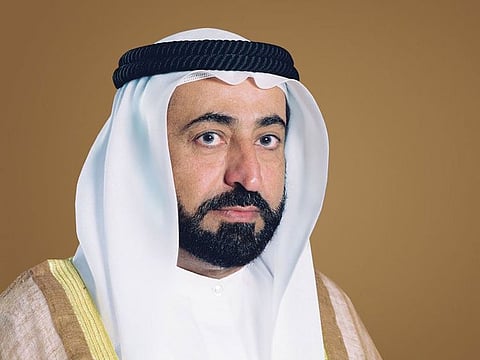Sheikh Sultan issues decree establishing ‘General Command of Sharjah Police’
A joint committee of the Sharjah Government and the MoI to oversee transition process

Sharjah: His Highness Dr. Sheikh Sultan bin Mohammed Al Qasimi, Supreme Council Member and Ruler of Sharjah, has issued a decree establishing an autonomous local statutory authority in the emirate, called the ‘General Command of Sharjah Police’.
According to Sharjah Government Media Bureaue, the authority is characterised by the legal personality and capacity necessary to achieve its objectives. It reports to the Ruler of Sharjah. It has a special flag, emblem, and uniform for its officers. Its units’ insignia is issued by a decision of the Commander-in-Chief of Sharjah Police after the approval of the Sharjah Executive Council.
According to the decree, the General Command’s current employees on the federal salary of the Ministry of Interior shall be transferred to the Sharjah Police General Command, determined by the Executive Council based on the proposal of the Commander-in-Chief, taking into account Cabinet Resolution No. (46) of 2019, and are subject to the provisions of Law No. (1) of 2021 and Law No. (2) of 2021.
The General Command’s assets, contracts, rights, obligations, accounts, technical and technological systems, all its works, tasks, documents and properties located in the Ministry of Interior shall all be transferred to it.
The decree also stipulates that the transition process will be supervised by a joint committee between the Sharjah government and the Ministry of Interior, and the committee will submit its reports and recommendations to the SEC.
A joint committee of the Sharjah Government and the Ministry of Interior will oversee the transition process. The committee will submit its reports and recommendations to the Sharjah Executive Council as soon as it convened.
The headquarters of the General Command is in Sharjah, and it is permissible, by a decision of the SEC, to establish branches or offices throughout emirate’s regions.
Following the Decree-Law, the General Command, to achieve its objectives, shall exercise the following competencies:
1. Maintaining public order and morals in the emirate.
2. Protect the population and wealth.
3. Fighting and preventing crimes
4. Arresting the perpetrators by gathering evidence and with the participation of the competent authorities in conducting investigations following the legislation in force in the emirate.
5. Managing punitive and correctional facilities according to the legislation in force in the emirate.
6. Executing the laws, decisions, regulations, instructions, orders, and procedures assigned to implement them.
7. Any other functions the Ruler or the Executive Council assigns to it.
The General Command shall have a Commander-in-Chief appointed by an Emiri Decree, and a sufficient number of employees shall assist in following its organisational structure. The Commander-in-Chief shall have the authority necessary to manage the affairs of the General Command and make the necessary decisions to achieve its objectives. In particular, The Commander-in-Chief shall have the following:
1. Suggesting security policies, plans, and strategies necessary to achieve the objectives of the General Command and presenting them to the Executive Council for approval or taking the required action in this regard.
2. Supervising the affairs of the General Command, its workflow, directing it, defining its objectives, and coordinating its work within the framework of the security policy and the general strategy of the emirate.
3. Issuing decisions, orders, and instructions to police departments and units to achieve their objectives.
4. Approving the draft annual budget of the General Command and submitting it to the Executive Council for approval.
5. Proposing fees, prices, and tariffs related to the functions of the General Command, and submitting them to the Executive Council for approval.
6. Suggesting the establishment of academies, institutes, schools, and training and research centres related to their specialisations, and submitting them to the Executive Council for accreditation.
7. Supervising the implementation of all laws, decrees, regulations, decisions, and systems related to the functions of the General Command.
8. Adopting a plan to raise the efficiency of human resources and the quality of work, services, and activities provided by the General Command.
9. Laying down the organising rules to ensure the security and confidentiality of information related to the activities of the General Command.
10. Coordinating and cooperating with all security agencies and local, federal, and international bodies.
11. Signing contracts, agreements, memorandums of understanding, and partnerships concluded by the General Command.
12. Representing the General Command before the judiciary and government agencies and in its relationship with others, and the Commander-in-Chief may authorise any person or other entity to represent the General Command before the court.
13. Any other duties assigned to him by the Ruler or the Executive Council.



